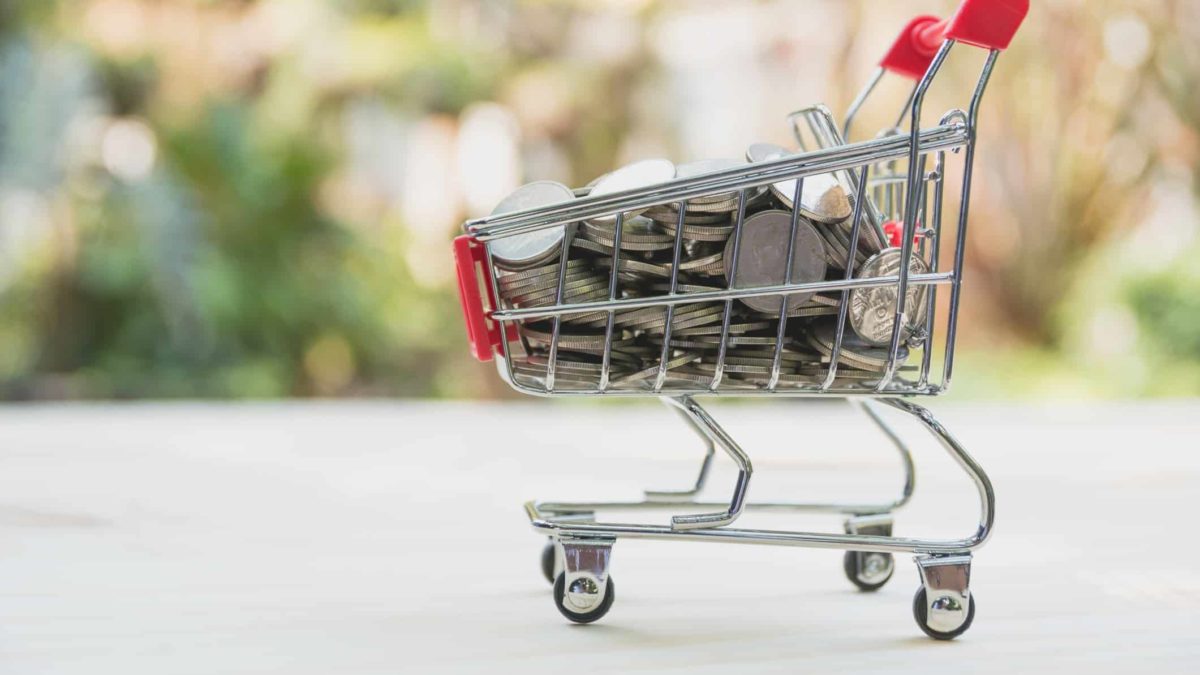The coronavirus pandemic saw shoppers flock to supermarkets around Australia to panic buy essentials and non-discretionary items. Despite the surge in consumer demand, the share price of Australia's largest supermarket retailer, Woolworths Group Ltd (ASX: WOW), remains flat for the year.
So, is the Woolworths share price a long-term bargain and should you buy?
How has Woolworths performed?
Late last month, Woolworths reported its strongest quarterly sales growth in more than a decade. The group's sales surged more than 10% to $16.5 billion for the quarter, with supermarket sales rising more than 40% in the week ending March 22. Long-life items such as toilet paper, pasta, flour and bread mixes fuelled sales growth as consumers rushed to stock up their pantries.
Woolworths saw total sales within its Endeavour Drinks business rise 9.5% for the quarter to $2.25 billion. Boasting brands such as Dan Murphy's and BWS, Endeavor Drinks reported a surge in sales as consumers stocked up on takeaway liquor amid fears surrounding lockdown restrictions.
All of this should have been a boost for the Woolworths share price. However, following the federal government's response to the coronavirus pandemic, the company closed the operations of its Hotels business in late March and, as a result, sales dropped more than 12% for the quarter.
$5 million boosts from Marley Spoon
Woolworths has also made a handy profit from its stake in subscription-based meal kit provider Marley Spoon AG (ASX: MMM). The Marley Spoon share price has surged around 400% since mid-March as the company enjoyed a boom in demand for at-home meal consumption.
As a result, according to the Australian Financial Review (AFR), Woolworths stands to make approximately $5 million in profit from its stake in the meal box delivery service. In 2019, Australia's largest retailer invested $30 million in Marley Spoon through a debt and equity transaction. The deal issued Woolworths with 8.2 million in ASX-listed chess depositary notes in Marley Spoon at 50 cents each.
Why is the Woolworths share price flat?
Despite strong sales growth in its supermarket and liquor divisions, as well as profit from its stake in Marley Spoon, Woolworths has also incurred increased costs. According to the company's management, increased costs for wages, security, supply chain and e-commerce will partially offset sales growth.
In order to satisfy consumer demand whilst also maintaining social distancing measures, Woolworths saw costs soar between $70 million and $90 million in March. These costs are expected to increase to a range of between $220 million and $275 million for the June quarter as Woolworths looks to prepare itself for future trading amid a potential second wave of the pandemic.
Should you buy?
The Woolworths share price is currently trading on a price-to-earnings ratio of around 27 times future earnings, which could prompt some investors to assess the stock as being too expensive. In my opinion, even though Woolworths has seen a surge in costs and substantial losses in its hotel business, the company's share price still looks attractive for long-term growth.
There are, however, many moving parts in the short term, given the uncertain trading environment resulting from the coronavirus pandemic. For this reason, I think a prudent strategy would be to see how Woolworths handles future costs before making an investment decision.









